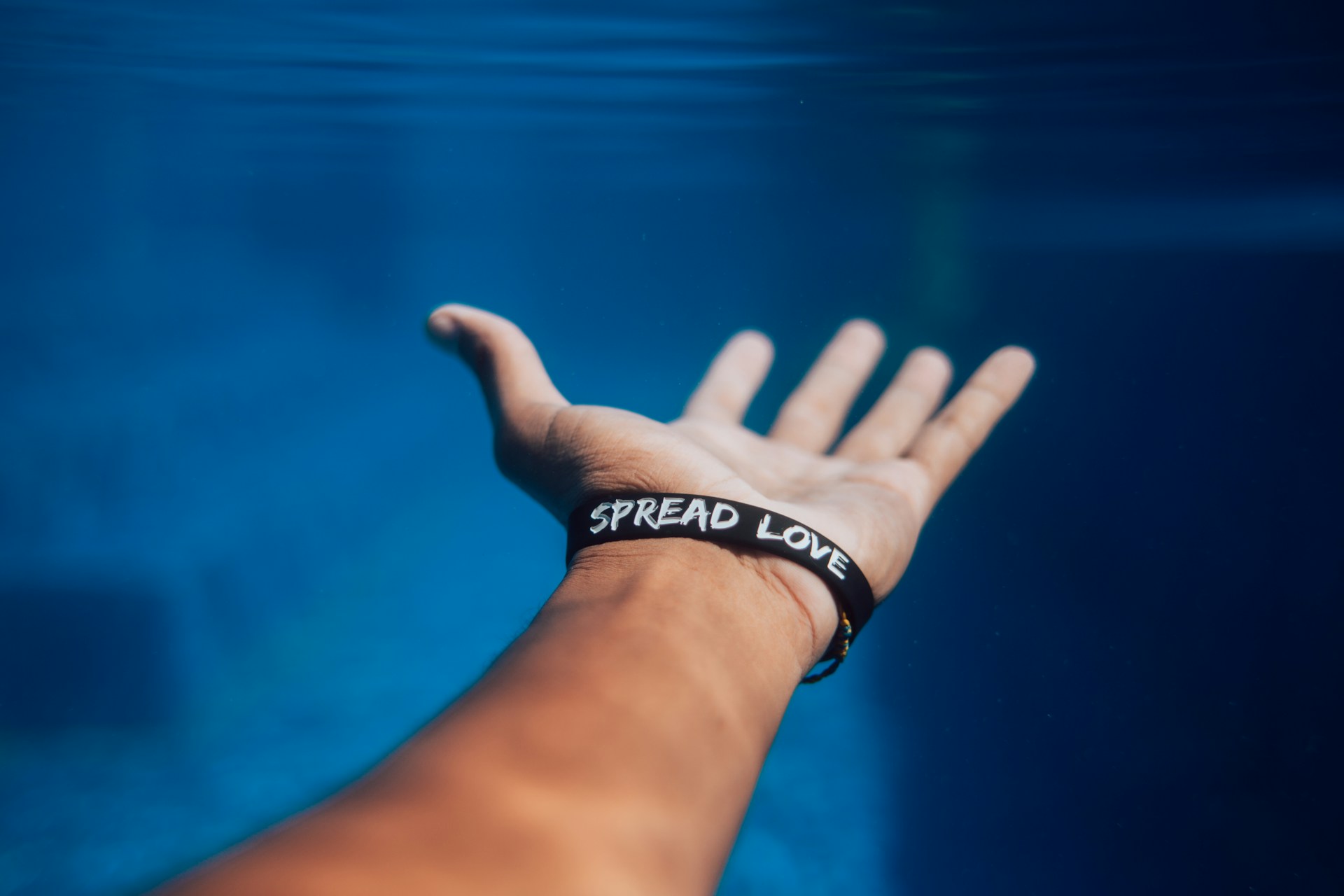Stepping into new things can be equal parts challenging and rewarding. This is especially so when you are stretching yourself to build healthier habits. It takes time and concerted effort to make big changes. Becoming more vulnerable as a person might not be a goal you have set for yourself; however, vulnerability is a key component of every healthy relationship, and it can’t be sidestepped without risk.
When the word “vulnerability” is mentioned, perhaps the image that is conjured up in your mind is of a circle of people around a fire, holding hands and singing a slow tune. Perhaps tears and other forms of emotional expression are present. This picture might be making you uncomfortable, and it might be the sort of thing that makes you want to steer clear of talking about vulnerability.
What is Vulnerability?
One way to describe vulnerability is to say that it is revealing who they are to another person. Who we are includes our emotions, weaknesses, thoughts, quirks, and a whole lot more. You’re being transparent about who you are, and not putting up a front.
When we engage with other people we will often mask our true thoughts, desires, and emotions from others. This is a hangover from our first parents, Adam and Eve, who hid themselves from each other when sin entered the world (Genesis 3). We can’t always be sure that the people we’re interacting with have our best interests at heart, and so we shield ourselves from potential harm.
If we are honest with ourselves, another reason we sometimes shield our true thoughts, desires, intentions, and feelings from other people is that we ourselves possibly intend harm to others. Whatever the reason behind it, we can end up not revealing who we are and what we truly feel and think. However, being open with others is necessary to have healthy relationships with them.
Being vulnerable is thus not about holding hands around a fire, necessarily, but it can be found in simple acts like telling someone that you care for them, giving someone a compliment, making a joke when it just might not land well, or sharing your opinion when a subject is being discussed. You are taking the risk of showing people who you are by expressing yourself freely; you are being vulnerable.
The Importance of Vulnerability in Relationships
Vulnerability is important in every sort of relationship, regardless of whether it’s platonic or romantic. When you’re vulnerable with others, it allows them to get to know you, your needs, and the person that you are. When you’re vulnerable, the relationships you form are more authentic, because they really like you as you are, and not just a projection of yourself.
When you aren’t vulnerable, the result is often that you can feel insecure in the relationship because you’re keeping your true self hidden. The relationship won’t be as satisfying as it could be because you’re not being yourself as you conduct it. Shallow relationships that don’t touch on serious issues of the heart, the things that truly concern you and move you, are unsatisfying and not worth the time when all is said and done.
Having vulnerability present in a relationship allows your partner, for instance, to know what you need. If you aren’t real with them, they won’t know how to respond to your true needs, and you’re bound to be caught in a cycle of miscommunication and frustration. You won’t get the support you’d want from the relationship, and your needs will go unmet as a result.
Areas Where Vulnerability is Difficult
 As a man, you may have some areas of your life that you struggle to be vulnerable with. Or perhaps there are certain relationships in which you avoid vulnerability. It’s possible to be vulnerable with a friend, for instance, while struggling to share that same vulnerability with a romantic partner. Below are some of the areas where you might find it difficult to be vulnerable.
As a man, you may have some areas of your life that you struggle to be vulnerable with. Or perhaps there are certain relationships in which you avoid vulnerability. It’s possible to be vulnerable with a friend, for instance, while struggling to share that same vulnerability with a romantic partner. Below are some of the areas where you might find it difficult to be vulnerable.
Apologizing
Owning up to your mistakes, and saying, “I’m sorry, I messed up”, could be a difficult thing to do. It can feel like you’re yielding ground, or losing face. Husbands might struggle to apologize to their wives, and fathers may struggle to apologize to their children.
Offering forgiveness
Forgiving someone who’s wronged you is another area of difficulty, especially if you feel you have an obligation to do so. You might be feeling raw after a betrayal, for instance, and not feel up to forgiving someone for harming you. You might hide your true feelings to preserve the relationship, or to avoid a confrontation.
When facing hardship at work
If you’re struggling to perform well at work, you might be unwilling to tell others of your struggles. Telling your boss or colleagues that you’re struggling with a deadline, a new protocol, or understanding your task can feel like exposing yourself to ridicule, and possibly even termination. To protect yourself, it can feel easier to keep your struggles to yourself.
When you don’t know what to do
Similarly, when you are in a situation where you don’t know what to do, it can be easier to fake it till you make it than to admit it. Many men value being competent, and not knowing what to do can be a huge blow to the ego, whether that’s knowing how to swing a golf club, change a diaper, or write a decent line of code. If you’re in a position of responsibility, such as if you’re a parent or a leader in some other sphere, admitting that you don’t know what to do can feel like a death blow.
When you’re afraid
Fear can also be a difficult thing to admit to. Cultural and even religious understandings of manhood can create the impression that fear ought to be a foreign emotion for men and that admitting to being afraid is almost like admitting that you’re not a man.
When you’ve failed
Failure hits hard, and it’s easy to conflate your value with your lack of success. Admitting that you’ve failed at something might feel tantamount to saying that you are a failure. The recourse is then to hide that failure in some way.
Being yourself when it could mean rejection or ridicule
Being honest and authentic when you know it will go over well is easy. However, when it’s a genuine risk, such as when being yourself could mean losing a friend or lover, it is harder to express yourself honestly and freely.
Moving Toward Deeper Vulnerability
Being vulnerable in your relationships is hard, but it is vital if you want to have authentic, deep, and meaningful relationships with others. People can’t truly love you and be present for you if they don’t know who you are, what you need, and how to be present for you in meaningful ways. If you want deeper relationships, you need to move toward vulnerability.
Becoming more vulnerable can happen when you:
Admit to yourself that you’re not perfect
Trying to present yourself as someone you are not is ultimately self-defeating.
Accept who you are, flaws and all
God’s grace is at work in your life, and where you are in the journey right now is okay. Just keep moving forward. Be vulnerable with yourself, to begin with; only then can you go on to be vulnerable with others.
Take ownership of your choices
Instead of blaming others, it’s important to acknowledge your failures and areas of weakness.
Talk about vulnerability with your loved ones
This conversation can be about the general topic of vulnerability, or you can be bold and talk about areas of your life where you struggle to be vulnerable.
Seek help
Sometimes, guidance is needed to understand your vulnerabilities and then move toward overcoming them. Talk with a counselor who can help you unpack your feelings of vulnerability and the fears that prevent you from sharing who you are with others. Taking that step to seek help can help you have more joyful, honest, enriching, and fulfilling relationships. Call our offices today to find a counselor who can help.
“Brown doors with plants”, Courtesy of Unsplash.com, CC0 License;
- Jennifer Kooshian: Editor
Jennifer Kooshian lives in the Upper Peninsula of Michigan with her husband of 32 years on a small homestead near Lake Superior. They have five adult children and one grandson. She also has an ever-changing number of chickens, a mellow old cat, and a...
DISCLAIMER: THIS ARTICLE DOES NOT PROVIDE MEDICAL ADVICE
Articles are intended for informational purposes only and do not constitute medical advice; the content is not intended to be a substitute for professional medical advice, diagnosis, or treatment. All opinions expressed by authors and quoted sources are their own and do not necessarily reflect the opinions of the editors, publishers or editorial boards of Stone Oak Christian Counseling. This website does not recommend or endorse any specific tests, physicians, products, procedures, opinions, or other information that may be mentioned on the Site. Reliance on any information provided by this website is solely at your own risk.




